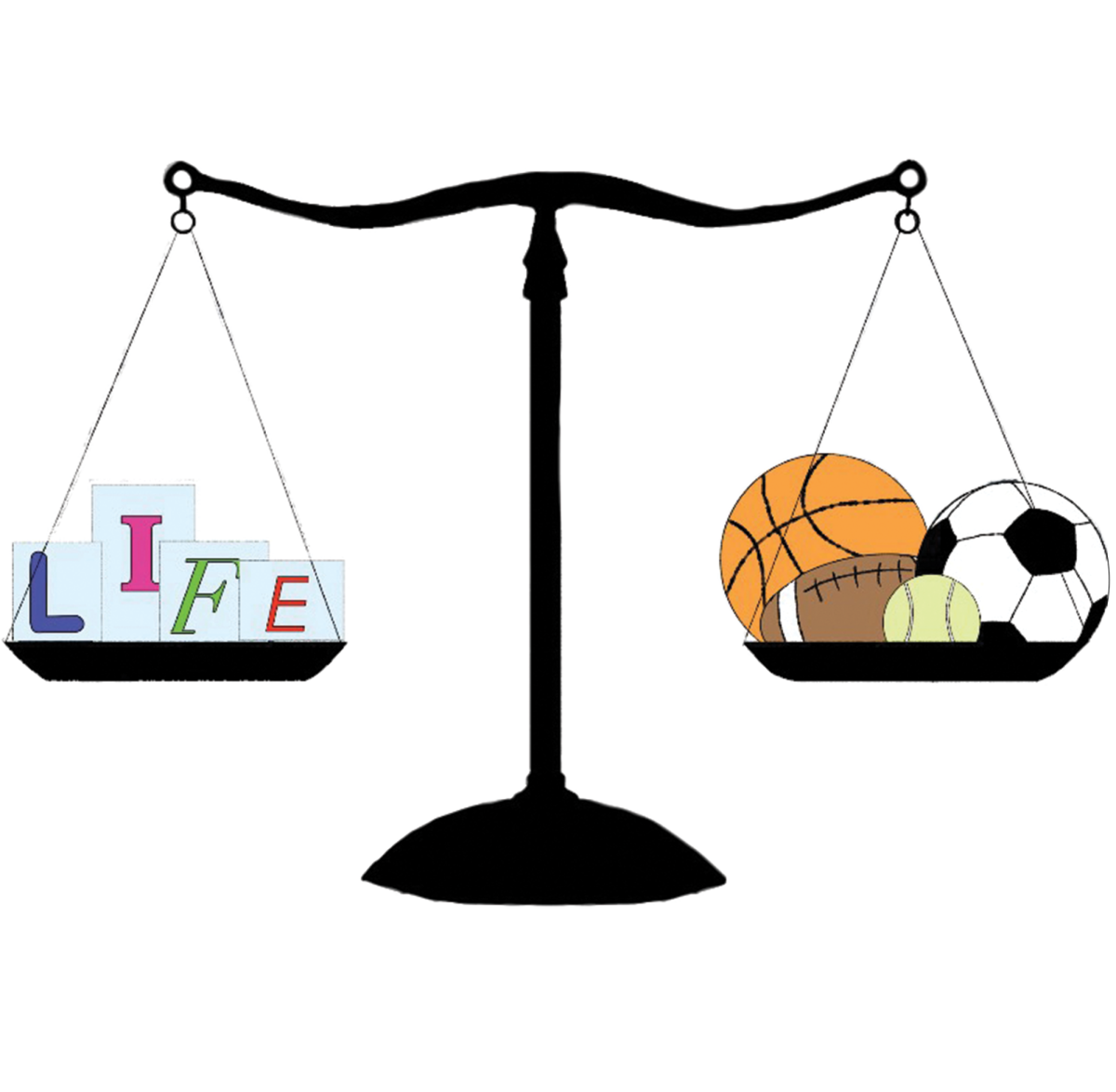The juggling of athletics with the mental, physical and social aspects of life can be a large struggle for athletes. Developing a healthy balance between the two proves to be of great importance to an athlete ultimately becoming successful.
Student athletes tend to push themselves to a breaking point before reaching out and communicating their needs to coaches, causing them to be prone to physical and mental challenges. They can feel exhausted and burnt out from the constant struggle.
According to sophomore Clara Gordan, she has felt exhausted by sports and added that coaches have made her feel like she has to “sacrifice parts of herself” to be able to prioritize athletics. Other athletes struggle with the same challenges, which shows the importance of looking into sports and what it all demands to see if it’s right for you.
Senior Mercedez Berduo-Flores, who plays softball, has especially struggled with the challenges that come with being a student athlete. She mentioned how softball sometimes feels more like a job, rather than something she enjoys doing and her happiness was being consumed by the stress of it, which in turn led her to take a break altogether.
“I had to take about, I think it was, two months to myself because it just got to be too much for me,” Berduo-Flores explained. “But coming back I started communicating with my coaches.”
Communication is a large part of ensuring a healthy balance in athletics. Making sure coaches and teammates know what is necessary to facilitate success. Communication is something Berduo-Flores advocates for now. She explains how she expresses her concerns about her mental and physical well-being with coaches when in need of breaks. She makes a point to communicate what could best help support her. This belief doesn’t just apply to athletics but academics too.
“Student comes before athlete, so to be good on the field, you also have to be good in the classroom,” Berduo-Flores said.
She also mentions that not only do sports complicate academics, but also take a large toll on relationships with friends and family because they do not always understand the full scope of being a student athlete.
“Not all my friends are athletes, so they don’t all understand the amount of time and effort it takes into putting in this sport and academics,” Berduo-Flores said.
Gordan, who plays volleyball, shares many of the same difficulties as Berduo-Flores, like balancing time between friends, family and sports. She relayed similar experiences where she lost friendships due to sports and its impact on relationships.
“With sports, and especially high school sports, you have practice or games every single day. Which means that you don’t have time for people, homework, clubs, really anything for yourself and for other people,” Gordan said.
Although playing high school sports comes with many challenges and difficulties, Gordan takes as many positives out of it as she can. She explains how she’s gained many life skills throughout her time playing sports, such as leadership, perseverance, mental and physical toughness–and a better perspective on failure.
“One thing I always try to remember is, people have bad games, I have bad games, even the best of the best athletes miss serves, miss the game-winning shot, and to really understand the same thing with life. People are gonna say mean things, people are going to make mistakes, you’re going to make mistakes,” Gordan commented.
A part of being an athlete is making mistakes. They are what we learn from to improve for the next time. But having a positive outlook on mistakes isn’t always easy, which is why having a good support system can help with the mental challenges of athletics.
Because they know being a student athlete is difficult, coaches like varsity volleyball coach Kyla Henry try to make their players feel as represented as they can. Henry offers support that comes in many forms.
“My phone is always on, I’m pretty much always available for text, calls, anything at this point,” Henry said.
Henry also noted how her players all have decent grades, so as of now, she doesn’t offer study hall days. However, if one of her players ever communicated with her about struggling in school and is in need of support, she would be there for them to accommodate them as best she could.
A large part of being on a sports team is having a community of people that you can trust and build connections with along the way, which is another aspect Henry incorporates through team bonding and the foundation she’s built with her team.
She explains how she’s built the volleyball program to be a happy place for athletes to be in, and once players are checked in, they are either playing, talking, having fun, or getting work done.
With this type of mindset and foundation for her sports program, Henry aims to relieve a lot of added pressure for athletes and give them a healthy environment for growing and learning within athletics.
While finding a balance between life and athletics can prove to come with many difficulties, athletes find comfort in community, friends, and family which is not only beneficial for their mental and physical health, but also helps relieve some of the challenges that come with sports.





